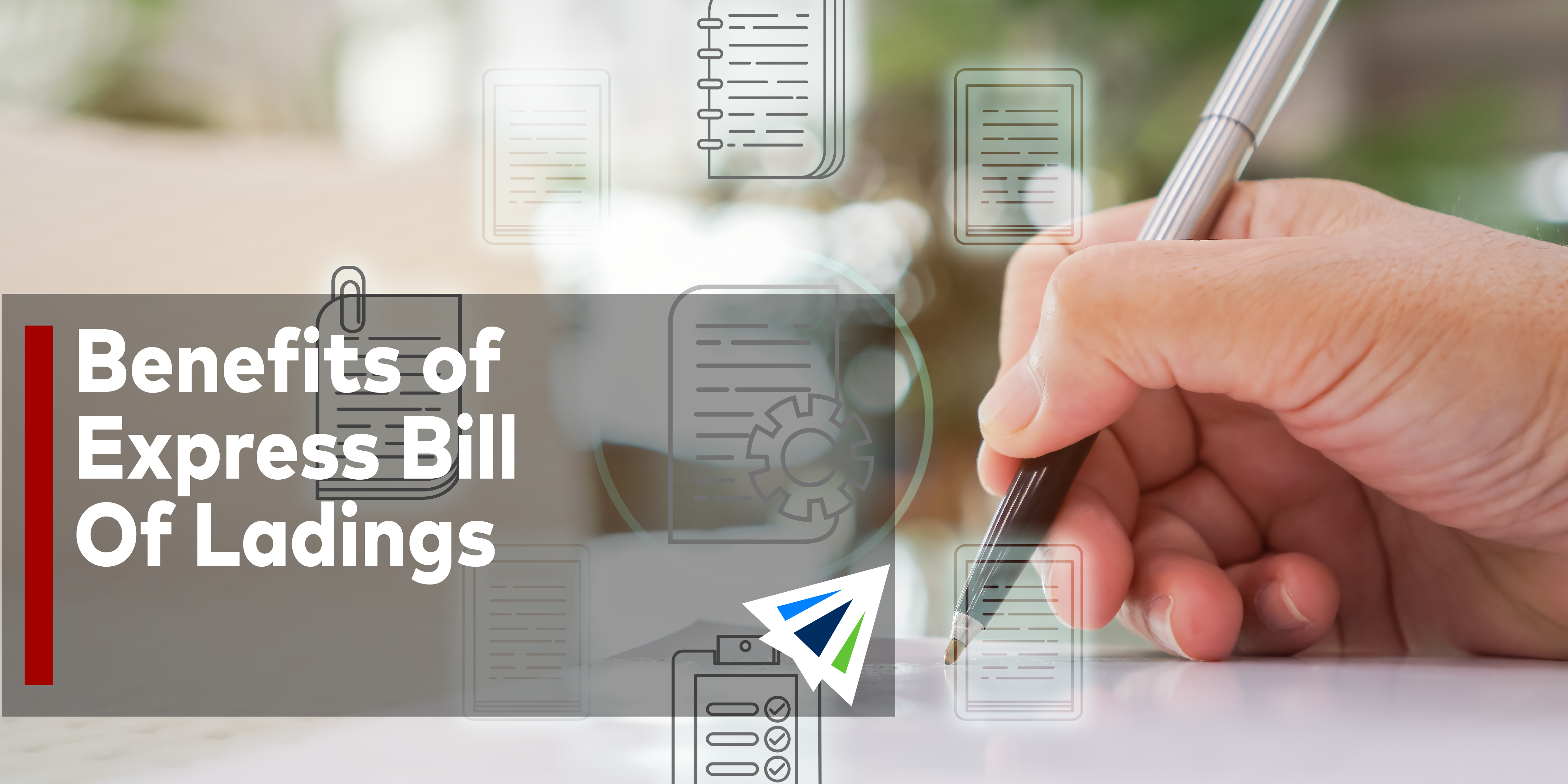We’ve written plenty of posts on Bills of Lading, what they are, how they function, and the different types of Bills of Lading that are used in a shipping transaction. While we won’t dive in depth here, this is a quick summary of what a Bill Of Lading is:
A Bill Of Lading is a document that is issued to a shipper which lists details about the cargo being shipped, and serves 3 primary purposes:
- The BOL indicates cargo has been properly loaded onto the vessel for departure
- The BOL serves as a contract of carriage (cargo details, type, amount, and destination)
- The BOL serves as a receipt for ownership of goods. Whoever carries the BOL owns the cargo.
With that brief summary in place, lets dive into what exactly an “Express Bill Of Lading” is.
Express Bill Of Ladings: Definition and Benefits
So, as stated above, a Bill Of Lading largely serves as a means to define ownership of the cargo. It serves as a title of the goods, meaning whoever is in possession of the BOL is considered the “owner”. This is especially important for insurance purposes – since the international shipping process is incredibly complicated with several moving parts and stages, if damage occurs at any point, it’s important that insurance agencies and carriers know who the cargo technically belongs to.
When the BOL is transferred, the ownership of cargo is transferred.
However, there is another document similar to BOLs that serves a slightly different purpose, called “Express Bill Of Ladings”.
Definition
An Express Bill Of Lading is a type of BOL where the carrier delivers the goods to the consignee without any original Bills Of Lading being issued. Essentially, it is a way to move a shipment forward quickly (hence the “express” part) without the added formality and security of official legal documentation binding the shipper and consignee on things such as payment, delivery, responsibility/ownership, etc.
You may be wondering, what are the benefits and in what instances would a company want a shipment transaction arranged under an Express BOL? Here are several benefits:
Benefits
Firstly, Express Bill Of Ladings are faster. There’s no need to wait for the transportation of original BOL documents to transfer ownership of the cargo. With an Express BOL, the carrier is told to simply move the cargo forward to the named consignee without additional documentation.
This is a huge benefit for companies that work frequently together, or for a single company with various branches/sub-companies located abroad who are shipping to each other. There’s no need to verify and hold each other accountable, or worry about who owns the cargo at which point.
This is also helpful when a shipping transaction doesn’t involve a bank, as there is no need to secure payment on the basis of original BOL documents being delivered.
An Express BOL can also be helpful if time is short and the named consignee and shipper trust each other. If there is no time to print and courier an original BOL, the two may agree to use an Express Bill Of Lading to speed up the process.
Contact our team today with any questions and to better understand Express Bill Of Lading.
